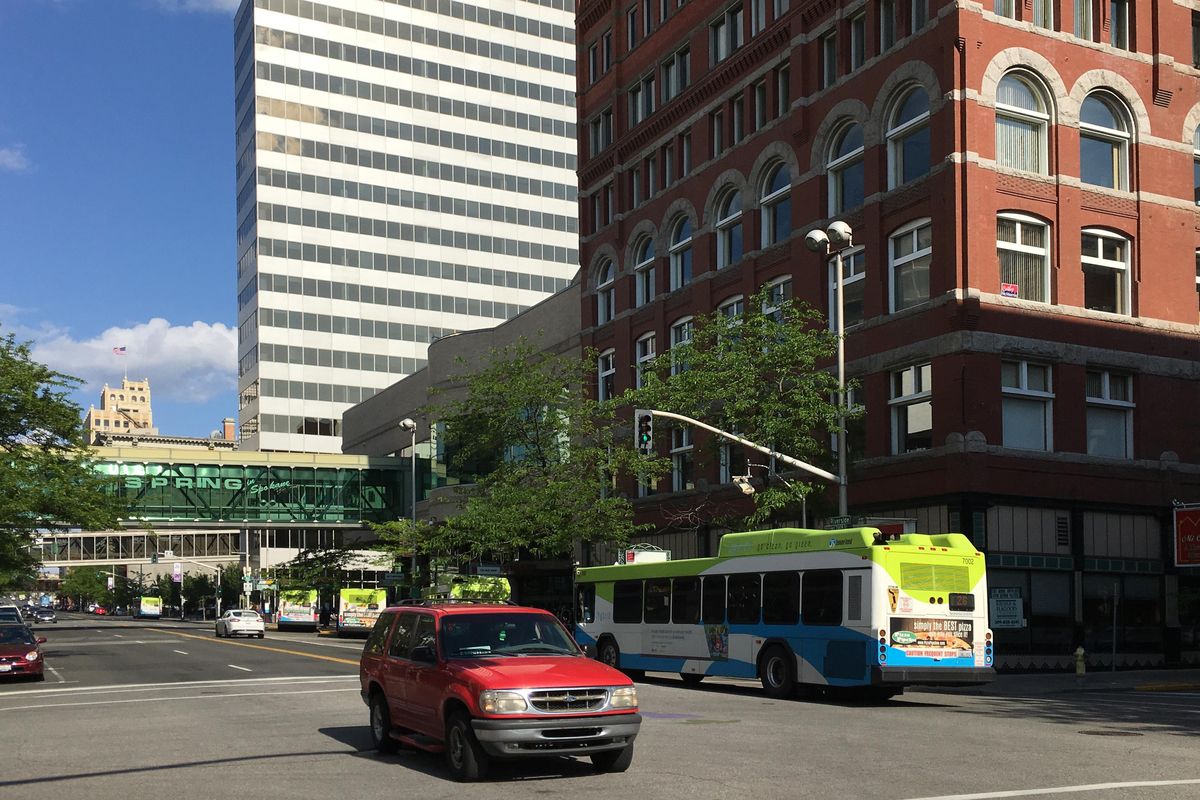Then and Now: Memorial Day 1942

Memorial Day activities between World War I and World War II were lighthearted events where the grizzled veterans of the Civil War, the Spanish-American War and lesser-known battles paraded and many flags were waved before families headed off to picnics. But the shadow of a world at war fell over Spokane, and the parade in 1942 was noticeably different from those in recent memory. The headlines in the newspaper that week were about British and German tanks battling in the Libyan desert, pleas to buy war bonds and decorating the graves of those killed by the Japanese at Pearl Harbor six months earlier.
The newspaper noted that the crowd was strangely quiet and many in the crowd discussed family members deployed in the war effort as the marchers passed. The 35-minute event had high school bands, Boy Scouts, floats, veterans and civil defense groups, and a grand marshal, C.Q. Corwin, one of the city’s two surviving Civil War veterans, at the age of 98. “Most noticeably lacking were the soldiers and sailors of World War II for they are doing a job that leaves little time for parading,” the newspaper said the next day. The only active-duty personnel marching were a small detachment from the Army Signal Corps and the Geiger Field band.
On the review stand with Mayor Frank Sutherlin was a small group of Army officers, including Maj. Cheney Cowles, editor of the Spokane Chronicle and son of The Spokesman-Review’s publisher, William H. Cowles. The major would die in the crash of a U.S. Army plane in Alabama one year later. The museum of the Eastern Washington Historical Society was named for Maj. Cowles in 1960 and carried the name until 2001, when it was changed to the Northwest Museum of Arts and Culture.
After the parade, many headed to cemeteries, arms loaded with flowers, to decorate graves and gather around military cenotaphs for speeches under the constant roar of bombers from Geiger Field as they circled overhead.